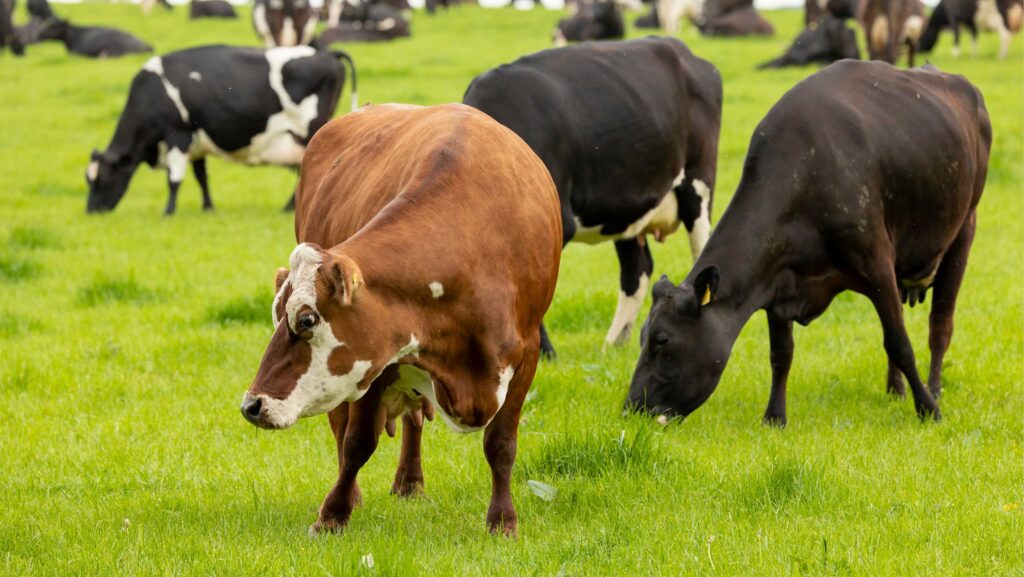Law to eradicate BVD on farms passed by Welsh government
 © Raymond Orton/Adobe Stock
© Raymond Orton/Adobe Stock New Welsh government legislation will come into effect next month as part of an industry-led approach to tackle Bovine Viral Diarrhoea (BVD).
From 1July, livestock keepers will need to screen their cattle annually for BVD by testing a small number of animals in their herd.
They will also be required to isolate persistently infected animals from the rest of the herd for the remainder of their lives.
See also: Bovine TB cattle slaughterings up 17% in Wales
BVD is a widespread viral disease affecting cattle, which can lead to abortion, infertility, deformed calves, and compromised herd health and welfare, particularly among youngstock.
Infected herds often experience increased cases of calf pneumonia and scours.
The new requirements form part of the Bovine Viral Diarrhoea (Wales) Order 2024, which has been developed in collaboration between cattle sector representatives and the Welsh government.
The compulsory phase of the BVD eradication programme will begin this summer, and farmers will have until 1July 2025 to complete their first annual herd testing.
Rural affairs secretary, Huw Irranca-Davies, said: “I understand and appreciate the serious impact of BVD, not just on standards of animal health and welfare, but also the impact on production and the serious economic costs of this disease to farm businesses.
“The eradication of BVD in Wales is a long-standing commitment, and I fully support industry and government working together in close partnership to achieve this outcome.”
Next step
Chief veterinary officer for Wales Richard Irvine said the legislation is an important next step in the disease eradication effort.
“Maintaining a BVD-free status strengthens the health and welfare of our cattle farms in Wales, and can also help reduce antibiotics usage,” he said.
“Embarking on this next phase of the BVD eradication programme in Wales is a really important step. I would like to recognise the industry-led approach, backed up by this new BVD legislation.
“We can achieve eradication through the ongoing efforts of all cattle farmers, working closely with their vets, to screen and protect their herds from BVD.”
NFU Cymru deputy president Abi Reader also expressed support for the legislation, but said that the path towards disease eradication would not be straightforward.
She said: “The fact that more than 80% of Welsh cattle herds engaged in voluntary screening during the time the Gwaredu BVD scheme was operational demonstrates the commitment cattle farmers in Wales make to operating at the highest standards of animal health and welfare.
“However, the journey to eradicating BVD is not straightforward at an individual herd or national level,” Ms Reader said.
“NFU Cymru stands willing to work with Welsh government and the wider cattle industry on the longer-term governance proposals, but would highlight that while Welsh farmers are ready to play our part, we should not be left shouldering the full cost.
“This is an issue we will be engaging on with our members in the coming months.”
RVC support
The Royal Veterinary College (RVC) has expressed its support for the new legislation after research carried out during the Gwaredu Bovine Viral Diarrhoea screening programme proved it a success.
From September 2017 to December 2022, the programme, supported by the RVC and other industry bodies, offered free screening and animal health advice to farmers.
The programme screened 85% (9,369) of cattle farms in Wales, conducting more than 29,000 screenings and issuing 19,282 BVD status certificates.
Overall, Gwaredu BVD identified that 27% of farms screened BVD positive in 2018. In 2022, this reduced to 23%, meaning 77% of tested farms are now BVD free.
Neil Paton, RVC lecturer and technical director of the Gwaredu BVC programme, said: “Eradicating BVD from farms and the national herd of Wales will have significant positive benefits for animal health and welfare.
“I am immensely proud of the significant contributions the RVC has made towards supporting BVD control in the UK.”
